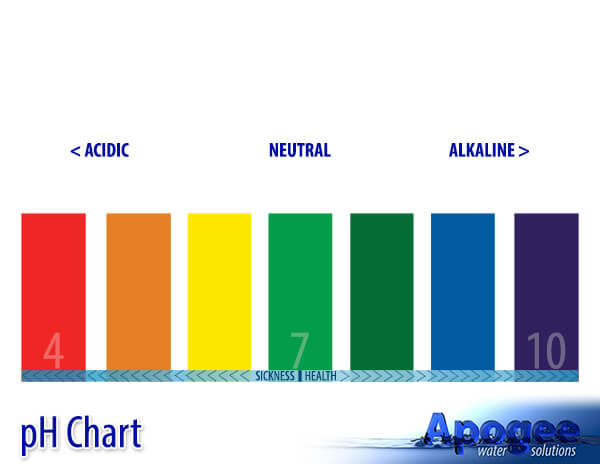What Is
pH
In basic chemistry, pH is a scale used to specify how acidic or alkaline a water-based solution is. At room temperature, pure water is neither acidic nor alkaline, and has a pH level of about 7. Since our bodies consist of so much water, they also maintain a pH balance which affects their ability to fight sickness and disease and to function properly. The foods and liquids that come into the body help to determine the pH balance that the body maintains.
The human body has a blood pH of 7.365 and it is essential to maintain this pH balance. Much of what we eat, such as processed sugar, meat, dairy, and coffee, has an acidic effect on the pH balance. As an effect, the body has to work extra hard to restore itself to neutral pH. Alkaline water greatly assists in the balancing process by introducing a higher pH to the body to offset the low pH and thereby, the natural balance is reestablished.

A healthy alkaline environment helps fight bacteria and infectious diseases and provides much needed energy; it also helps by bringing your body into balance.
